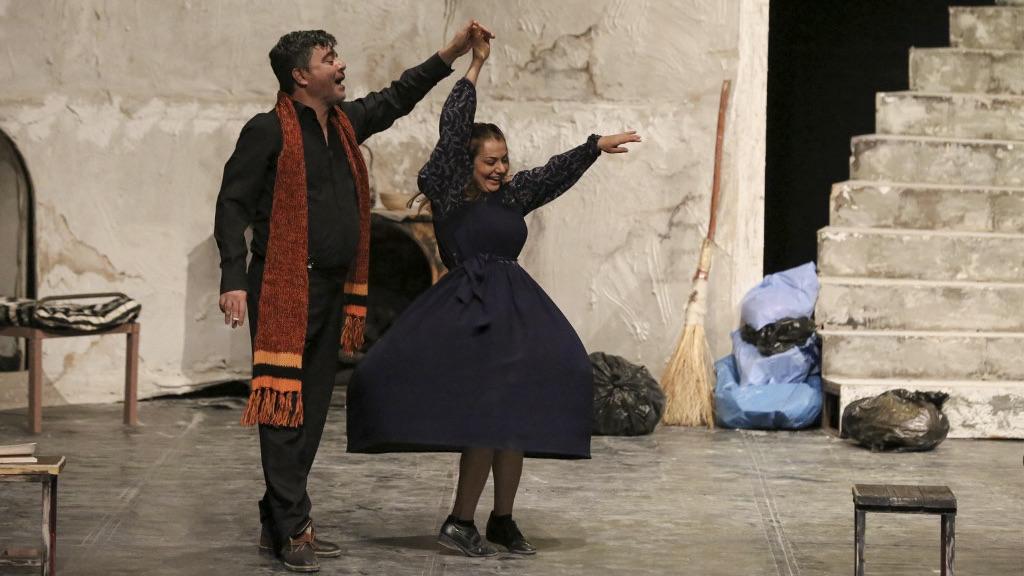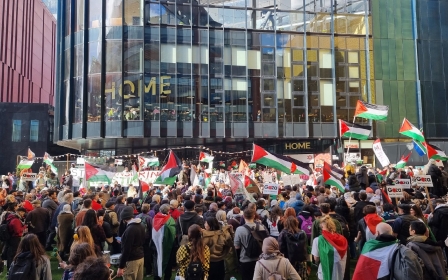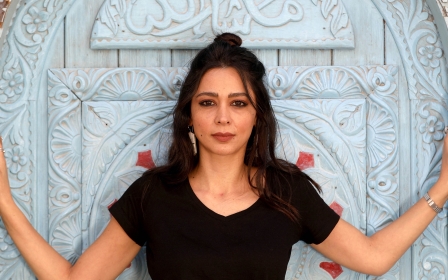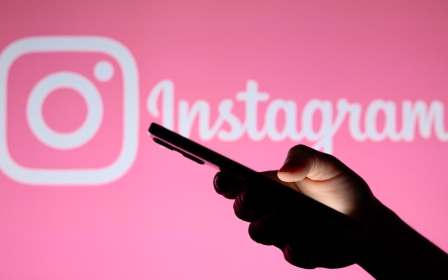Artists must not stay silent or 'neutral' about Israel's genocide

When the invitation to attend the Baghdad International Theatre Festival arrived by email, I was so excited.
One of the festival organisers had been in touch with me almost a year earlier to say I would be invited. However, it was only when I received the signed official letter that I felt the possibility of my going was becoming real.
There was some confusion regarding whether I needed a visa or not. I hold a British passport and the only Iraqi documents I have are all expired and carry my photo as a six-year-old.
These old documents are of a moment frozen in time when my family had to flee the Saddam Hussein regime in 1981.
I thought we were going on a summer holiday. It turned out that the holiday lasted for 38 years, because I was only able to return to Baghdad in 2019.
New MEE newsletter: Jerusalem Dispatch
Sign up to get the latest insights and analysis on Israel-Palestine, alongside Turkey Unpacked and other MEE newsletters
After receiving the festival invite, I went to the Iraqi embassy in London and applied for a visa.
The embassy staff recommended that I apply for an Iraqi ID when in Baghdad. I felt that obtaining new documents might usher in a new era for me, where I would reconnect with my country of origin on a deeper level.
I was excited by the prospect of visiting Baghdad again because, in 2019, I could only stay for a week, a ridiculously brief time after such a long absence.
Kowtowing to Israel
The excitement of going to the festival did not last long.
On 15 October, the festival organiser got in touch to let me know that the festival had been postponed due to Israel’s expanding war in the region.
Follow Middle East Eye's live coverage for all the latest on the Israel-Palestine war
I knew this was a possibility when Israeli Prime Minister Benjamin Netanyahu stood at the 79th session of the UN General Assembly holding two maps of the Middle East: one of a group of countries he called “the blessing” (marked in green) which collaborate with Israel, including Egypt, Jordan and the Gulf countries; another showing those he called “the curse” (marked in black), which included Lebanon, Syria, Iraq and Iran.
Iraq is in many ways similar to Lebanon in that the government is an ally of the United States, but the country has militias that are loyal to Iran.
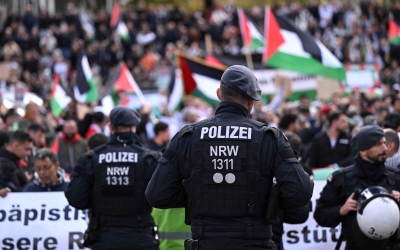
Under President Joe Biden, the US has kowtowed to Israel to such an extent that the prospect of bombing and invading Middle Eastern countries whose governments are friendly to the US has gone ahead with little opposition.
As a playwright who has written about the pernicious effect of pro-Israel lobbies in the US in my play Love, Bombs and Apples, I cannot say I was surprised by this capitulation. But even I did not think the US would be so foolish as to risk so many strategic relationships for the sake of Israel.
My theatre colleagues in Lebanon are documenting the destruction of their country on social media. Writer and director Hanane Hajj Ali not only shows the devastation but also posts useful information for those needing to seek safety from Israel’s constant assaults.
Zoukak Theatre, arguably Lebanon’s most prominent theatre troupe, put out a statement recently saying: "A few days ago, we decided to cancel our biennial festival, Zoukak Sidewalks, which was a special edition this year, marking Zoukak’s 18th anniversary."
The statement went on to say: "In this historic moment, we call on the international cultural and artistic community to stand united against colonialist atrocities, funded and co-produced by governmental and taxpayer money in the 'West'.
"We urge you to raise your voice about the current situation, which has reached an irreversible point: daily massacres, widespread displacement, and the extensive destruction of civilian areas, all met with disturbing international complacency. This is not only about our own survival, but about the future of human consciousness. We call upon your solidarity during these dark times for Lebanon, Palestine and the world."
International artistic solidarity is gathering momentum. This culminated recently in a letter signed by some 5,000 authors (myself included) pledging not to work with “Israeli cultural institutions that are complicit or have remained silent observers of the overwhelming oppression of Palestinians”.
Forging new connections
The Baghdad International Theatre Festival has been postponed by the organisers until 10-18 December.
I hope it will go ahead, and that I will be able to visit Iraq again. I don’t have any family left in the country as they sought refuge abroad due to Iraq’s successive wars, so the festival would be a chance to forge new connections.
I am looking forward to meeting the people who make Iraqi theatre, as well as watching shows. Iraq has gone through so many hardships, mostly induced by the West, and it is only now coming up for air and rebuilding.
The prospect that it could be dragged into a new regional war does not bear thinking about.
The aggression by Israel towards its neighbouring countries would not be tolerated if it were being carried out by any other country, particularly by any other Middle Eastern country.
But the stranglehold Israel has on politics in the US, UK and many EU countries (particularly Germany) means that governments are silent or directly complicit.
Many artists have decided to stay silent or "neutral" on the issue (Zadie Smith’s article in the New Yorker being a case in point).
But as Ta-Nehisi Coates, whose book The Message is a penetrating indictment of Israel, recently put it: “People think they’re going to lose something by talking about Palestine. But they should think about what they lose by not talking about Palestine.”
Theatres in the UK have been reluctant so far to put on shows that are sympathetic to the Palestinian cause.
The Royal Exchange theatre in Manchester cancelled the entire run of a production of A Midsummer Night’s Dream over references to the conflict in Gaza and trans rights. This censorship is dispiriting.
I was lucky to be asked by theatre director Cressida Brown to write a short play for Cutting the Tightrope: The Divorce of Politics from Art, a multi-author show about Palestine and censorship which premiered at the Arcola Theatre in London earlier this year.
The show sold out largely due to word of mouth, showing the hunger audiences have for plays that deal with this most urgent of subjects. It has now returned to the Arcola until 7 December.
Despite the show’s earlier success, the Arts Council refused to fund this second run and the producers have had to rely on very limited private funding.
I invite you to come and see the show. You will be combating censorship by simply attending.
The views expressed in this article belong to the author and do not necessarily reflect the editorial policy of Middle East Eye.
Middle East Eye delivers independent and unrivalled coverage and analysis of the Middle East, North Africa and beyond. To learn more about republishing this content and the associated fees, please fill out this form. More about MEE can be found here.



